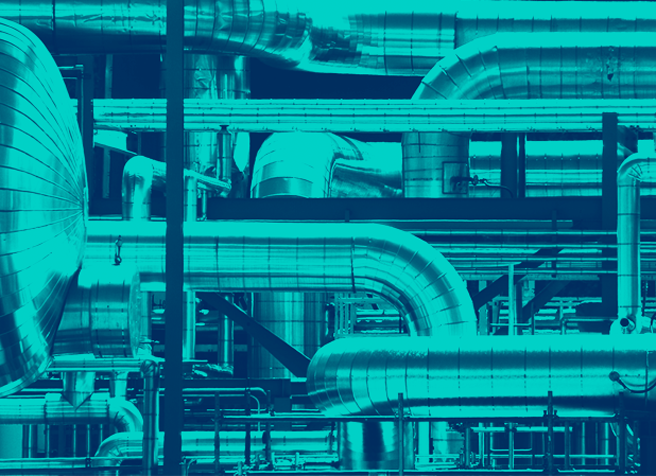The world’s largest private power company does well by doing good. Enel SpA is headquartered in Rome, Italy. They are the largest private distributor of electricity in the world – with about 74 million end-users worldwide. They are the leading private operator in renewable energy with a capacity of 46GW, and they employ over 68,000 people. The company’s operations span 32 countries on 5 continents.
Enel has also kept a keen eye on the bottom line. Their solid business performance in recent years has made them darlings of the global investment community. Last year Enel’s stock price posted a 40% gain, exceeding a €7 share price, outperforming the Italian index (FTSE-MIB: +28%) and the sector index (Euro STOXX Utilities: +22%) and has also been included in the STOXX Europe 50 index, which brings together the fifty largest companies in Europe.
Can Global Scale / Strong Financial Performance / Sustainability Coexist?
In other words – can a behemoth like Enel do well (financially) by doing good? The answer is yes. We salute Enel for their sustainability oriented business model – one that integrates environmental, social and governance factors (ESG) throughout their entire value chain, as well as working to support the UN Sustainable Development Goals.
For Enel it all starts with a crystal clear purpose for being in business:
“Open Power for a brighter future. We empower sustainable progress.”
Enel believes that openness is the key feature of their business strategy. To this end they are working to ensure that their services reach more and more people in a growing number of countries – boosting local economies, driving sustainable progress and extending access to energy.
The company’s lofty aims match the massive scale of their operations – they want to overcome some of the greatest challenges in the world. Enel believes this will be achieved through a new approach which combines attention to sustainability with the best in innovation.
Open power means opening energy access by Enel, as reflected in their stated mission:
1. Opening energy access to more people – seeking to connect more people to safe and sustainable energy, especially in South America and Africa.
2. Opening the world of energy to new technologies – by pioneering the development of new technologies for more sustainable energy generation and distribution, in particular through renewable sources and smart grids.
3. Opening new ways for people to manage energy – more efficiently through smart meters and digitalization.
4. Opening new uses of energy – focusing on connectivity and electric transport.
5. Opening new partnerships – in research, new product development and marketing in order to build new solutions together.
Building Blocks for a Sustainable Business Model
Sustainability has been at the center of the Enel business model for many years. The company has integrated the relevant UN Sustainable Development Goals (SDGs) into their strategic planning model with specifically defined and measurable 2030 targets.
The four UN SDGs that Enel measures its performance against include:
SDG 13: Climate Action – the main challenge and opportunity for Enel. The company is committed to a 70% reduction in its direct greenhouse gas emissions per kwh by 2030, and by 2050 they will reach full decarbonization.
SDG 7: Affordable and clean energy – Enel aims to add 14.1GW of renewable capacity over the next three years, 60% of their consolidated installed capacity will be renewable by the end of 2022.
SDG 9: Industry, innovation and infrastructure – Enel has installed more than 44.7 million smart meters and they are investing 11.8 billion Euros in innovation and digitalization over the next three years.
SDG 11: Sustainable cities and communities – Enel is investing in a range of new electrification services. These will bring 10.1 GW of demand response capacity and 736,000 electric vehicle charging stations by the end of 2022 – allowing consumers to play a central role in the way energy is stored, shared and used more efficiently.
Enel has taken innovation and sustainability into financial markets – by issuing “Green Bonds” and SDG-linked bonds – the first bonds in the world linked directly to UN Sustainable Development Goals. The two operations raised a total of €3.9 billion on the American and European markets, attracting great interest from the international financial community. Oversubscribed by an average of 3.6 times supply and a cost discount of up to 20% compared with conventional financing instruments, the operation led to Enel winning the “ESG Issuer of the Year” award from International Financing Review.
In an interview earlier this year – Francesco Starace CEO of Enel was asked about sustainability and responded: “There was a time when sustainability was considered a cost… companies said – we need to be sustainable, how much will it cost?” he continued “Now the issue is – Can you survive being unsustainable in the next 10 years? Probably not. It’s about survival.”
It’s clear that sustainability has become a priority for Enel, and they are leveraging their size and scale to make it a core part of their business model. As Starace observed “Everyone at Enel needs to under the sustainability concept fully… it helps our lives and guide our thinking” and it is already paying handsome financial dividends for this energy giant – demonstrating that Enel is doing quite well by doing good.



